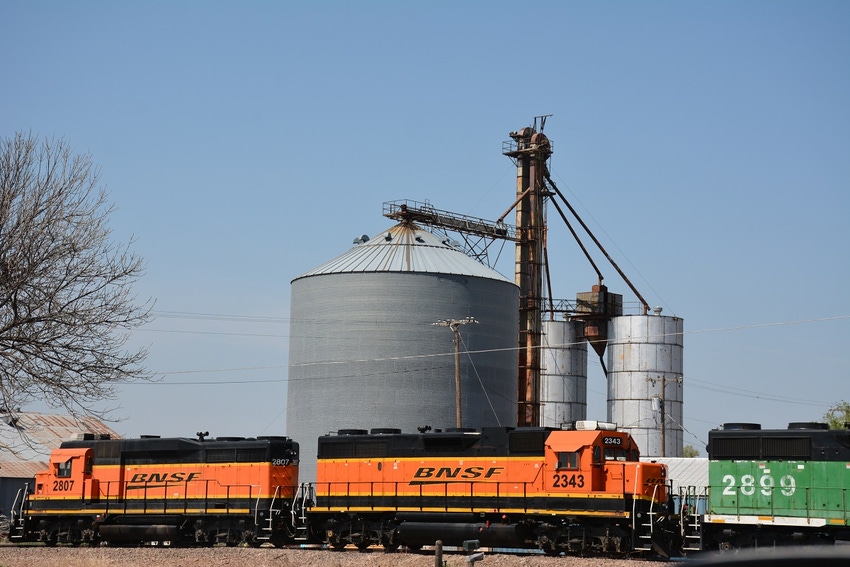
When the clock struck midnight on Jan. 1, Americans said goodbye to 2017 and welcomed in the new year, most with the hope that 2018 will be a good year in spite of the usual challenges, many of them leftovers from the previous year.
For farmers and ranchers, and the millions of others who depend on agriculture to survive or who provide the supplies and materials the industry needs to be productive, the major issues of the year will include both the hope for a new and meaningful farm bill that will stabilize the safety net for producers and U.S. trade policies and agreements that help the industry compete competitively in the global market.
In 2015, an estimated 21 million full and part-time jobs in the U.S. were related to the agricultural and food sectors—just over 11 percent of total U.S. employment. Direct on-farm employment accounted for about 2.6 million of these jobs, or 1.4 percent of U.S. employment.
While both the farm bill and trade agreements like NAFTA and KORUS will directly affect farmers and livestock producers, the largest number of Americans who work in related fields, such as food production, distribution and marketing, and in the processing, shipment, and transportation sectors, will also see significant influence from domestic farm policies and international trade alliances.
While farmers, farm groups and agribusiness have been lobbying Congress and the White House to speed the farm bill process and to provide a more effective safety net for the next four years, they have adamantly enlisted the support of lawmakers to prevent trade policy changes, like a possible withdrawal from NAFTA as President Trump has threatened.
But America's food producers are not the only one's voicing concern over the negative impact to the industry if such a withdrawal actually comes to pass.
Transportation Jobs in Jeopardy
Pro Trade’s Doug Palmer told Politico in early January that if President Trump pulls out of NAFTA this year, thousands of transportation jobs up and down the Mississippi and across rail and truck networks would be in jeopardy, potentially causing a significant number of wage earners to become unemployed.
Paul Aucoin is the executive director of the Port of Louisiana, a hub of loading and shipping docks that stretches from Baton Rouge and New Orleans, over 50 mile of warehouses and shipping facilities that move wheat, corn and cereal grains off-loaded from barges that originated all across the Heartland to distant locations, including Mexico, which imported $3.6 billion in U.S. dry commodities last year.
"We’re actually the largest grain-exporting port in the United States," Aucoin told Pro Trade. "All the grain barges from the Midwestern states come down river to the Port of South Louisiana."
Transportation industry officials say if the U.S. withdraws from NAFTA, the entire transportation industry could find itself in a major crisis. Many believe an America without NAFTA would snarl trucking and shipping patterns and "upend supply chains." The shipping infrastructure, which was greatly enlarged to handle trade with Mexico and Canada, would begin to crumble, both in terms of lost jobs and lost investments that served to develop massive trucking and rail support systems to handle the load of a NAFTA economy.
Ed Hamberger, president and CEO of the Association of American Railroads, told Politico that a loss of NAFTA would have a tremendous impact of railroads. Hamberger said it would be disastrous to suddenly unwind 25 years of intense investment in rail infrastructure.
More Impacts
Writer Ana Campoy, a Latin America reporter who often pens articles for Quartz, an international digital news outlet, says a U.S. without NAFTA would have a far reaching impact on industry and consumers.
"NAFTA essentially reduced tariffs between the three countries to zero. Without it, tariffs would revert to levels under the World Trade Organization. That’s an average 7.5 percent tariff on American goods coming into Mexico, and as much as 150 percent for certain products such as meat and poultry. Mexican products, in turn, would have to pay an average 3.5 percent to enter the US," she noted in Quartz report last year.
The supply chain developed between U.S. and Mexican investors would suffer a major impact, perhaps ending many businesses and forcing the closure of joint-investment projects in both countries, further costing workers jobs and inflicting investment losses to principals and financial supporters like banks and brokers.
In addition to the loss of jobs and infrastructure, consumers would be paying higher prices for Mexican imports, including high value produce and other food products. She speculates the U.S. would see a steady increase in illegal immigration as Mexican workers who will lose their jobs may be forced to find other employment, including U.S. jobs.
A Shot in the Foot
Jaime Serra Puche, Mexico’s chief negotiator in the NAFTA renegotiation talks, told reporters in November that scrapping the treaty and introducing protectionist measures as touted by President Trump would amount to the U.S. "shooting itself and the region in the foot."
"The degree of integration within North America has increased dramatically since NAFTA 20 years ago, to the point where we’re not only trading with each other, but now producing many things together. [President] Trump needs to understand that introducing protectionist measures would introduce obstructions and self-inflicted problems on the region, including the United States," he told the Guardian.
According to a report in The Hill, pulling out of NAFTA would endanger the estimated 14 million U.S. jobs supported by $1.2 trillion in trade between Mexico, Canada and the United States. Unlike negotiating a free trade agreement with a first-time partner, U.S. businesses and farmers have built massive networks of commercial and investment relationships across North America under the NAFTA agreement.
The Hill report indicated annual trade between the two neighbors is worth over half a trillion dollars, equaling $1.6 billion of trading each day.
Mexican exports to the U.S. have jumped six-fold since NAFTA took effect in 1994, to $320 billion last year. Almost 80 percent of Mexican exports head north of the border. Meanwhile, U.S. exports to Mexico increased almost five-fold over the same period to $236 billion in 2015. Mexico is the second biggest export destination for U.S. products and for southern states such as California, Texas and Arizona.
About the Author(s)
You May Also Like






